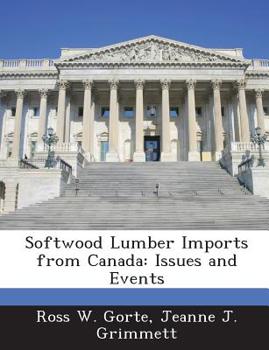Softwood Lumber Imports from Canada: Issues and Events
U.S. lumber producers have long raised concerns about softwood imports from Canada. They argue that Canada subsidizes its lumber producers with low provincial stumpage fees (for the right to harvest trees). In Canada, the provinces own 90% of the timberlands, which contrasts with the United States, where 42% of timberlands are publicly owned and where government timber is often sold competitively; these differences in land tenure make comparisons difficult. U.S. producers also argue that Canadian log export restrictions subsidize producers by preventing others from getting access to Canadian timber; U.S. log exports from federal and state lands are also restricted, but logs are exported from U.S. private lands. Finally, U.S. producers argue that they have been injured by imports of Canadian lumber. They point to the growth in Canadian exports and market share, from less than 3 billion board feet (BBF) and 7% of the U.S. market in 1952 to more than 18 BBF per year and a market share of more than 33% since the late 1990s. Canadians counter these arguments, asserting that their stumpage fees are based on markets, that the WTO prohibits treating export restrictions as subsidies, and that the U.S. industry has been unable to satisfy the growth in U.S. lumber demand for homebuilding and other uses.
Format:Paperback
Language:English
ISBN:1288670028
ISBN13:9781288670024
Release Date:January 2013
Publisher:Bibliogov
Length:42 Pages
Weight:0.21 lbs.
Dimensions:0.1" x 7.4" x 9.7"
Customer Reviews
0 rating





